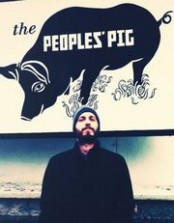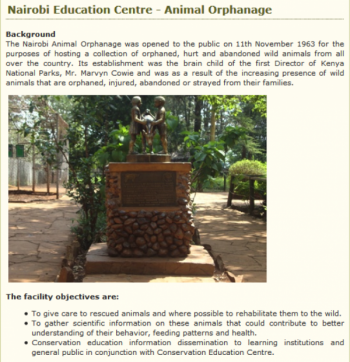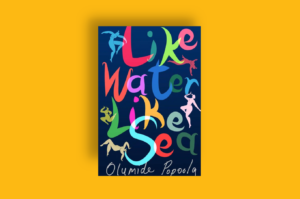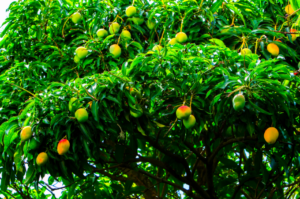We’re kicking off the Caine Prize story-review series with Aaron Bady’s review of Billy Kahora’s story, The Gorilla’s Apprentice.
Kahora’s story, published in Granta (2010) is one of five stories shortlisted for the Caine Prize.

by Aaron Bady
Jimmy knew all about being watched. What his mum called love.
Orphaned children and animals are always precarious members of the human family, no matter how “human” they may seem in moments of comfort. Against the backdrop of the Post-Election Violence in Kenya, in 2007, Billy Kahora’s “The Gorilla’s Apprentice” opens with an invocation of this simple fact—the way humans can be animals to other human animals. He does this by showing us an orphan looking into a cage at a gorilla, silently, an animal who was “Captured and Saved from the Near Extinction of His Species After the Genocide in Rwanda,” even as Kenya burned on the headlines of the Sunday Standard, smoke from Kibera intruding on their reverie.
Which is the animal? Which is the human?
Except Jimmy isn’t an orphan, as it turns out. He has a “Nairobi Orphanage family pass,” but we shouldn’t move too quickly to clarify this counterintuitive jumble of the words “family” and “orphan,” to realize our mistake and forget that we made it. The mistake is the point: Jimmy has a mother—and an absent father, too—but the story told by his “Nairobi orphanage family pass” is a much more unsettling story about the ways being or not being an “orphan” is not a simple matter of having or not having a parent. You can be abandoned by your father, and your mother can refuse to allow you to be a child. Your brother can kill you dead in a moment of confusion, or fear, or even love.
If we know that animals are often “captured” to be put on display in Zoos, to be exhibited like prisoners of war, like Ota Benga, then this is a zoo which does not call itself a zoo: this is an orphanage.
But if a zoo can be an orphanage, can an orphanage be a zoo? What else might be something other than its name?
The story told in that moment, at the beginning of the story, is about readerly confusion, when we realize, suddenly, that that the “Nairobi Animal Orphanage” is a place where orphaned animals go, to be rescued, to be saved, to be rehabilitated. But if animals are human, are humans animals? This is a story we don’t like to tell, in which maybe humans aren’t humans, families aren’t families, and nations aren’t nations, a reality we would rather not look at, but which intrudes on our reveries like smoke from burning tires. Sometimes an orphanage is really a zoo, no matter what words are being used; sometimes a child is really an orphan; sometimes being “loved” is really to be watched.
Animals don’t have names, and they don’t speak or weep for the dead, because if they do have and do these things, then they are human. But maybe humans who kill, who mute their violence, who lose their names, are just animals, too. Maybe underneath the Jimmys and Sebastians and Charleses and Winslow, we are just animal meat, as indistinguishable and un-grievable as water in water, and maybe sometimes that reality becomes too pressing to ignore. Sometimes we eat at “carnivore restaurant,” a place where the meat appears as commodities, cleaned up, washed, priced; sometimes we see the violent force that turns a human into a thing.
Billy Kahora’s “The Gorilla’s Apprentice” is a story about a child and a man, a child who knows things and a man who has seen things. The child wants the man to teach him how to talk with the animal, how to turn violence into love, but the man, fleeing from violence and himself, has no answers for him, can tell him nothing. The man hides from being seen, from love; he knows that to be embraced will mean his death. It does. And the child watches, wordless.
Read The Gorilla’s Apprentice HERE.
Come back next Tuesday for Richard Ali’s review of Diane Awerbuck’s story, “Phosphorescence.” Read it HERE.
Post image via etisalatprize.com
***
 Aaron Bady is a post-doctoral fellow at the University of Texas, teaching African literature. He writes the blog zunguzungu.
Aaron Bady is a post-doctoral fellow at the University of Texas, teaching African literature. He writes the blog zunguzungu.
Follow Aaron Bady on twitter: @zunguzungu










Mel u July 01, 2014 23:51
I read and posted on this story yesterday. I thought the author did a decent job of bringing the chaos of the city to life, mirrored in the chaos of Jimmy's life. Sebastian is kind of a symbol,for the natural world of Niarobi, destroyed and near death, now just something to show in a zoo.